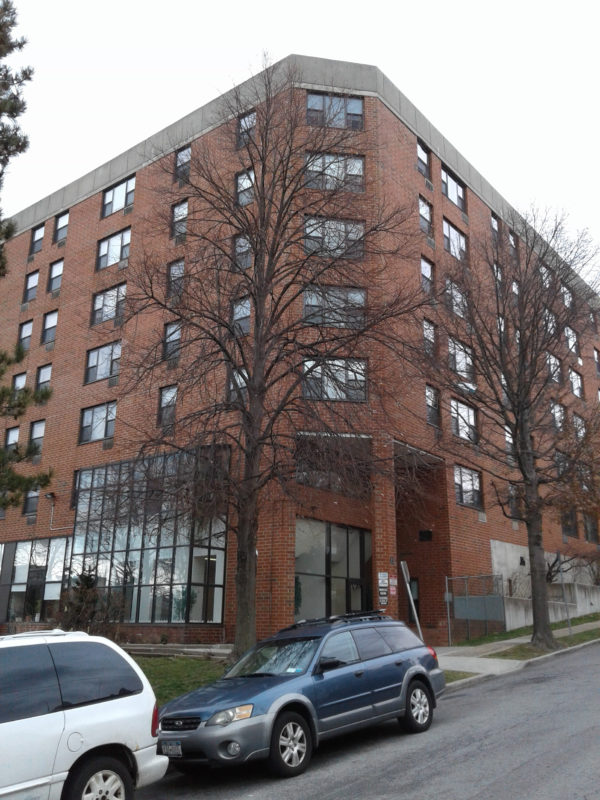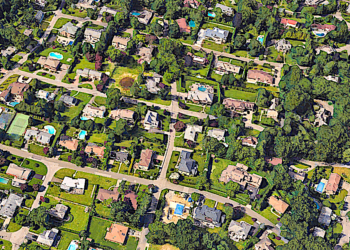Abandoned industrial buildings, a dormant construction site, a vacant and deteriorating historical house and subsidized housing for the elderly nearing the end of its useful life are conditions that can hurt a town”™s image.

But two projects in the village of Ossining could convert those liabilities into assets over the next two years.
The Westchester County Industrial Development Agency gave preliminary approval to financial incentives for Hudson Steppe and Maple House Apartments at its Jan. 26 meeting.
Developers on the two projects want to invest more than $118 million, create 189 apartments, preserve and restore 105 apartments, fix the historical house and create 240 construction jobs.
The developer of Hudson Steppe, Ossining Land LLC, is an affiliate of Orb Management in Manhattan. The firm acquired two parcels at 34 State St., in 2007 and 2008 for $12.65 million. But the project was delayed by the Great Recession, real estate crash and market demands that required plans for condominiums to be scrapped.
Stefan Malter, who owns 90 percent of the company, and Barnet Liberman, who owns the rest, have incurred $16 million in sunk costs that cannot be recovered, according to the IDA financing application.
Their 5.9-acre site once housed a wallpaper factory and offices. All of the structures will be demolished, with one exception: Smith-Robinson House, an historic building, will be preserved.
The plan is to build 189 units, including 19 subsidized apartments, and an automated underground garage with 231 spaces. The apartments will be built into the slope overlooking the Hudson River and require cuts of up to 20 feet into the bedrock, according to a 2014 village planning document. Amenities include a recreation center, swimming pool, private garden, landscaped plaza, gym, clubhouse, media roof and bike storage space.
Smith-Robinson House will include 7,500 square feet of office space. Most of the original exterior is hidden by additions that will be demolished, the village report says. Original facades and detailing will be preserved if they are salvageable. Features of the house will be renovated or replicated, based on a late 19th Century photograph and an 1852 auction advertisement, including a cupola and a prominent front porch and stairs.
The project is budgeted for $80.5 million. The IDA gave preliminary approval for nearly $2.2 million in financial assistance – a $1.5 million sales tax exemption and $676,000 mortgage tax exemption. The developers are negotiating with the village for property tax abatement.
Construction is expected to start in March and take two years to finish. The work will produce 190 construction jobs and then 11 permanent positions at the completed mixed-use property.
A possible impediment remains in obtaining construction financing. “The financing of new construction projects still remains a challenging environment,” according to the developer’s IDA application, although lenders look more favorably on projects with public-sector support. The company noted that they have been in “protracted negotiations” with a bank that succeeded its original lender.


Maple House Renewal LLC got preliminary approval for a different kind of IDA assistance, a $27 million bond.
Maple House Apartments, a 6-story, 105-unit facility, was built in 1983 at 15 Maple Place and is nearing the end of its useful life, according to the IDA applicant. It was designed as “enriched housing” for the disabled, the frail or those who can live independently but need extra help. Residents must be at least 62 years old and qualify for a federal Section 8 housing subsidy.
The developer plans to repair and renovate the exterior, replace the roof and an elevator and upgrade mechanical systems. The first floor will be reconfigured to include a new management office, business center, fitness center, storage area and library-game room. Kitchen cabinets and appliances, bathroom fixtures and vanities will be replaced in apartments as needed.
Work is expected to take eight months, and the residents will continue to live there during construction.
CH&E Construction, Lancaster, Pennsylvania, is the general contractor. The project will create 50 construction jobs and one property management position.
The overall budget is $39.1 million. That includes construction costs of $3.95 million, or $38,000 per unit, and $26.5 million to acquire the land and buildings.
The developer is also seeking a $12 million low-income housing tax credit from the New York State Housing Financing Agency. The Richman Group Affordable Housing Corp., of Greenwich, is the tax credit syndicator – purchaser.
Maple House Renewal is managed by a company owned by Renewal Housing Inc., a nonprofit affiliated with the National Foundation for Affordable Housing Solutions. The foundation is developing the project with Pala Maple House Holdings LLC.
















